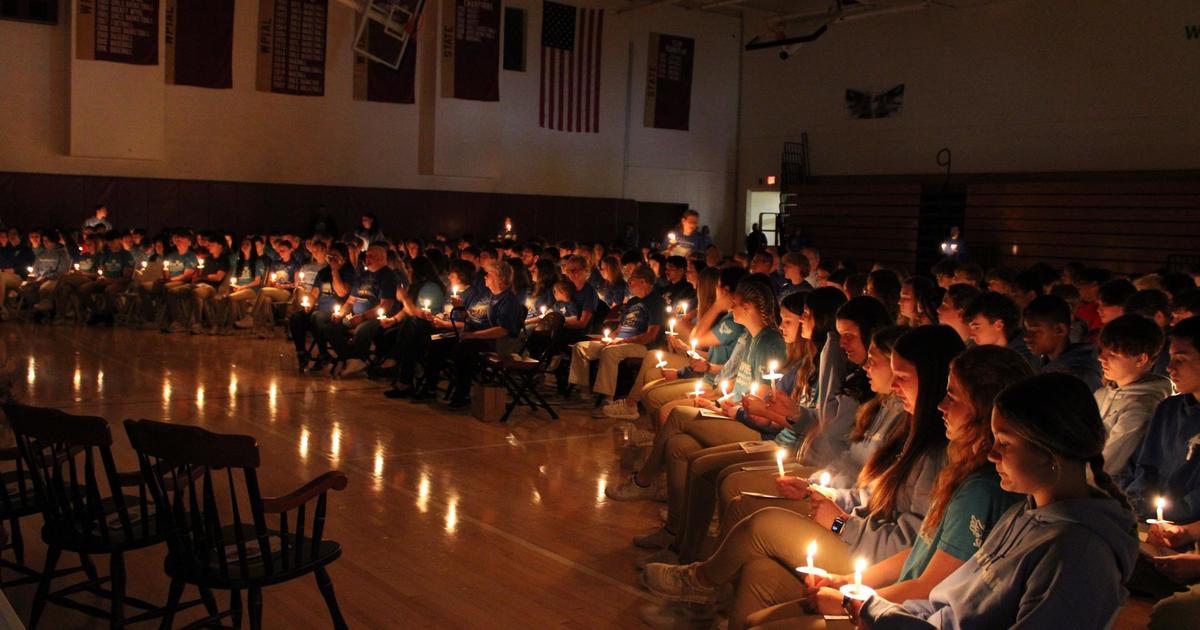Fatal Overdoses At All-Time High In Region
PITTSBURGH (KDKA) -- The most lethal killer on the streets is not the gun-toting criminal; it's the heroin he sells. Here in Allegheny County, throughout the region and the country, fatal overdoses have reached all-time highs.
"There are more drug overdoses now than there are homicide, suicides and automobile accidents put together," says Allegheny County Medical Examiner Dr. Karl Williams.
With cheap, potent heroin readily available seemingly everywhere, fatal overdoses have more than quadrupled in the past two decades.
In Allegheny County, where 227 people died of fatal ODs in 2010 and 307 succumbed in 2014, there were an astounding 349 fatal overdoes last year.
Dr. Williams says drug addiction and fatal overdoes know no boundaries in the victims they claim.
"I've had 62-year-old white males who had their coronaries bypassed that are dying of heroin overdoses," he said. "The 20-year-olds, the 30-year-olds, male, female, white, black. It's just an extraordinary equal opportunity employer."
Preliminary numbers for other counties show fatal overdoes on the same trajectory:
- Westmoreland County had 57 fatal overdoses in 2010, 87 in 2014 and 225 last year.
- Washington County had 31 fatal ODs in 2010, 37 in 2014 and 73 in 2015.
- Butler County had 14 in 2010, 29 in 2014 and 47 last year.
- Beaver County had 27 in 2010, 29 in 2014 and 40 fatal overdoses last year.
The numbers are so great that it seems everyone now knows a relative, friend, or friend of friend who has died from a fatal overdose. But sadly, the meteoric rise in the fatalities shows no signs of slowing down.
KDKA's Andy Sheehan: "This is an epidemic?"
Dr. Williams: "Oh, yea, this is the single most important epidemic of our current generation. There's no doubt about it."
Join The Conversation On The KDKA Facebook Page
Stay Up To Date, Follow KDKA On Twitter
One local family knows the impact of this epidemic firsthand.
One a street like any other they are a family, perhaps just like your own. Two parents, Carol and Dino, daughter, Danielle, and a son, Peter. He was a well-liked, well-rounded teenager who played high school football for Quaker Valley.
"Then, in his senior year he got hurt, hurt his back," said Carol. "He went to the doctor, and they prescribed him pain pills."
Peter Bartolomucci then went down a path like many others, buying pills when his prescription ran out, progressing to OxyContin and then heroin.
Carol confronted him when she found a needle, but Peter kept on using. He survived an overdose and then got arrested for possession.
"That's when I decided he's going away," said Carol, "and I packed up a bag for me and a bag for himself."
Peter went into rehab across the state, and then worked construction with his uncle in Poconos before returning home for Thanksgiving. All seemed well until he went to take a shower that seemed to go on too long.
"I just yelled through the door, 'Hey, Pete, hurry up, you're using up all the hot water,'" says Carol.
Carol opened the door to see Peter's leg dangling outside the shower curtain, his lifeless body lying in the tub. CPR brought no response and the paramedics rushed him to Sewickley Valley Hospital.
"We proceeded to follow the ambulance and they took us to a private room, and it's never good when they tell you we're taking the family to a private room, and we waited for a while and the doctor came and told us that he passed away, that he didn't make it," said Carol.
On his cell phone, they found a text to his supplier.
"'I'm in town for a few days; I've got $20 bucks. I'm looking for two or three. I just want to do it one more time,'" said Carol of that communication. "And that one more time got him."
The Bartolomucci's had waged a solo fight against the addiction and lost, but when the entire town of Coraopolis came out for Peter's wake and funeral, they learned they were not alone.
"We had masses of people that came and their sitting around, and they're like, 'I have the same problem,'" said Dino. "It's their little secret. It's the worst secret you can keep."
They don't exactly know how, but they plan to organize a support and awareness group -- lend assistance to others -- starting by sharing their own tragedy.
"It knows no boundaries; it will touch anybody's life," said Carol. "If you think you're immune to it, you're not. It can get into your household."
Today in their home, Peter's ashes sit in an urn on the mantelpiece flanked by his pictures and his childhood handprints. They are constant reminders that the son they loved is gone, but that they must carry on, hoping some good will come of the pain.
"A big hole in my heart," Carol says. "I will always miss him, but I want to do something in Peter's honor that nobody's ever going to forget his name. That he didn't die in vain. That he always wanted to help his friends, and now, we're going to. We want to help this community and get the word out and help the people who are going through this too."
On block like millions of others, the Bartolomucci's tragedy is another reminder, that no town, no neighborhood, no street is immune to the heroin epidemic in America.



